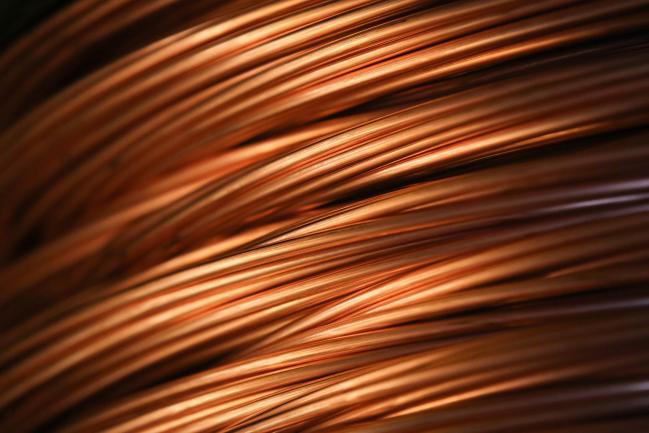(Bloomberg) -- After a non-stop rally, metals prices are starting to pull back.
Copper, aluminum and nickel slid more than 2 percent on Tuesday as investors focused on the rebounding dollar and evidence of ample supply in the physical market. Precious metals also retreated, with silver falling as much as 3.2 percent.
“We’ve had a significant rally across base metals, and it’s hard to justify a further move higher at these levels,” Warren Patterson, a commodities strategist at ING Groep (AS:INGA) NV, said by phone from Amsterdam. “There’s probably a fair bit of profit-taking going on.”
Read: One Thing Missing From Copper Boom Is Buyers of Actual Metal
Metals have been on a tear since May as enthusiasm over growth in China and demand from electric vehicles brought in new investors. The rally has been across base and precious metals, sending copper above $7,000 a metric ton for the first time in three years and palladium to a record.
COPPER
Copper dropped as much as 2.4 percent on Tuesday to $7,054 a ton. High stockpiles and a slack forward price curve, with LME spot prices trading below futures, suggest that suggest buyers aren’t yet rushing to secure copper as factories ramp up.
The metal advanced almost every day in December, but has started to retreat this month. Prices are down almost 3 percent so far in 2018.
HSBC Holdings Plc (LON:HSBA) has raised its copper price forecast, responding to a recent slump in the dollar and rebounding factory output growth that’s lending support across commodity markets in recent weeks.
“A lot of the wage negotiations taking place this year are taking place in the second half of the year,” Patterson said. “The market has been pricing in the risk premium quite early on.”
OTHER METALS
Aluminum slumped 2 percent to $2,182 a ton as investors in China focused on bloated inventories and rising output in Xinjiang. Nickel dropped 3.7 percent to $12,380 a ton, leading base metals lower.
Gold for immediate delivery fell 0.3 percent, sliding from a four-month high, as the dollar strengthened and haven demand subsided.
